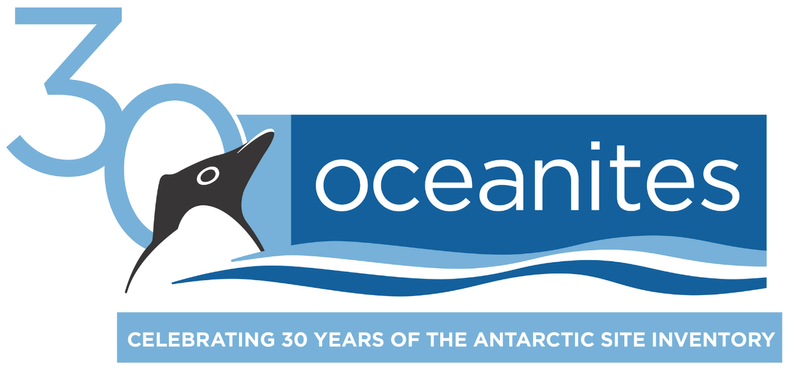
Future of Antarctica
Climate Challenge
Future of Antarctica Climate Fund
A challenge to identify the impact of climate change on Antarctic Peninsula Penguins
The Future of Antarctica Forum (FOA) convened by the US-based international NGO Oceanites, took place in 2016 in the Antarctic Peninsula on board the MV Akademik Ioffe. FOA brought together leading Antarctic stakeholders, including government, NGOs, tourism, fishing, and scientists, to discuss issues — particularly, climate change — that have been stalled for many years at the annual governance meetings of the Commission for the Conservation of Antarctic Marine Living Resources (CCAMLR), the management body overseeing fishing activities in the Southern Ocean surrounding Antarctica.
FOA included multiple meetings among all stakeholders and numerous bilateral conversations, as well as sessions with the public traveling on board. There was considerable attention given to the current challenges CCAMLR has in living up to its conservation mandate. A clear consensus emerged around the lack of work to address climate change and meager public awareness of how important the effects and impacts of climate change have been in Antarctica and the Southern Ocean, which is warming faster than anywhere else on Earth except the Arctic. These effects and impacts have significant global ramifications.
To address this knowledge gap, it was agreed that sustained work by Oceanites monitoring the sensitive Antarctic Peninsula region via its Antarctic Site Inventory project, using/analyzing the organization’s ongoing penguin population database in conjunction with similar, long-term datasets (e.g. on fishing, ocean productivity, winter sea ice extant, sea surface temperature changes, and other regional predators), would provide an opportunity for a breakthrough in understanding and communicating about climate change.
Toward that goal, Oceanites was tasked with — and has taken on — a new, international, and interdisciplinary project identifying current and potential impacts of climate change on Antarctica and the Southern Ocean. Our unique effort will guide both future policy decisions in the region and educate the public, worldwide, about serious global impacts from these changes.
Specifically, Oceanites was challenged to:
‘Distinguish the direct and interactive effects of climate change, fishing, tourism, and national operations on ecosystems in the Antarctic Peninsula region for improved environmental management’
Oceanites accepted the challenge — and, has made important progress advancing this unique effort, which has been set up to succeed by:
— Ongoing Antarctic Site Inventory data collection and analyses, coordinated with The Lynch Lab For Quantitative Ecology, Stony Brook University (US) and Penguin Lifelines, University of Oxford (UK);
—Memorandum of Understanding with Aker BioMarine, the Norwegian company that conducts more than 80% of the krill fishing in the Antarctic Peninsula, allowing Oceanites to independently analyze the company’s catch/effort data over the last decade as it relates to penguin breeding/foraging locations and climate change impacts in the Antarctic Peninsula; and
— Analyses of automatic identification system (AIS) data that Oceanites has obtained commercially, to spatially and temporally quantify, assess, and distinguish the direct and interactive effects of climate change, fishing, tourism, and national operations on the Antarctic Peninsula ecosystem.
With this groundwork successfully established, Oceanites seeks $225,000 to ensure, in collaboration with The Lynch Lab, Stony Brook University, that these results and outcomes are achieved:
Result/Outcome #1:
Groundbreaking analyses of krill fishing, penguin breeding/foraging locations, and climate change in the Antarctic Peninsula.Result/Outcome #2:
Raising awareness by bringing these data and new analyses ‘into the sunshine’ to ensure precautionary, ecosystem management is in place as the Convention on the Conservation of Antarctic Marine Living Resources intended, as well as raising public awareness, worldwide, of climate change and the relevance of Antarctica to all.Result/Outcome #3:
Ensuring, in regard to Antarctic Peninsula penguin conservation, that potential impacts from the krill fishery are minimized, if not reduced/avoided altogether.
Oceanites and the Antarctic Site Inventory already have identified dramatic penguin population changes in this region — Adélie and chinstrap penguin numbers have plunged significantly in recent decades, while the gentoo penguin population is significantly increasing and expanding its range. These penguins are sending signals we shouldn’t ignore about adapting — or not — to new realities in a changing local, regional, or global climate.
The issue Oceanites will address through this work breaks new ground both in regards to climate change as well as climate change’s related impacts and effects on sea ice, fishing, ocean productivity, ocean currents, and atmospheric conditions.
The Future Of Antarctica Climate Change Project advances this work, emphasizing that what happens in Antarctica — to its penguins, wildlife, land, ice, and surrounding Southern Ocean — affects all of us.
